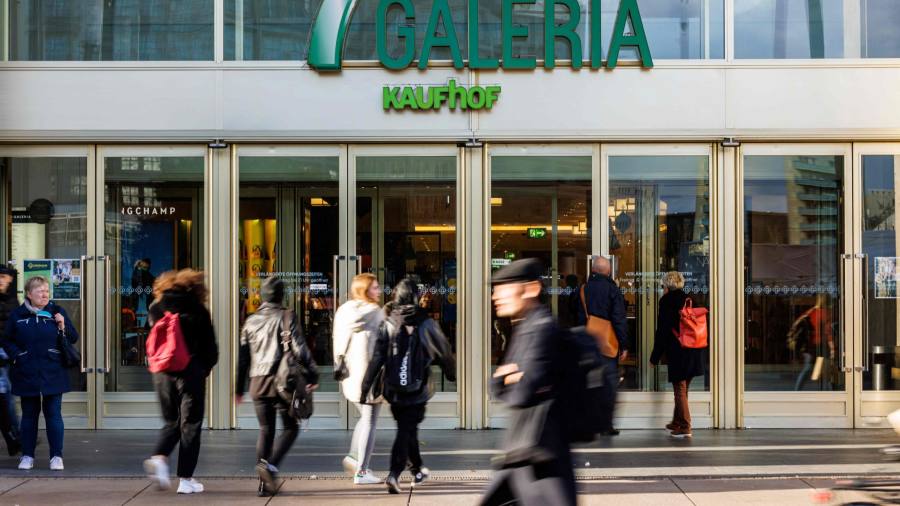
Germany’s largest department store chain has filed for bankruptcy protection for the second time in two years, heaping pressure on its billionaire owner, René Benko, to stump up hundreds of millions to save it.
Galeria Karstadt Kaufhof, which operates 131 stores across Germany, employing 17,400 staff, has already taken two bailouts from the German government, worth €680mn.
Politicians in Berlin are reluctant to provide a third without greater participation from the Austrian property mogul Benko and his Signa Group — a collection of companies that control a sprawling European property empire worth more than €24bn.
It comes after the chain first filed for creditor protection in April 2020 when it was forced to close stores owing to the pandemic lockdowns.
Around a third of jobs at Galeria will be slashed as part of a planned restructuring, the company’s chief executive, Miguel Müllenbach, told the Frankfurter Allgemeine Zeitung newspaper on Monday as it applied for bankruptcy protection.
A spokesperson for Galeria said that the company had held “constructive and goal-orientated” discussions with the German government but that the financial terms offered for a further bailout were too onerous, and a radical restructuring was therefore the only option.
“The exogenous factors of the pandemic, inflation at record levels as a result of the Ukraine war and energy prices that have increased many times over, have led to [decreased footfall] in city centres and a historically negative consumer mood,” they said.
The politically sensitive restructuring of Galeria is not the only problem Benko is currently dealing with.
Last month Austrian police raided Signa’s headquarters as part of a sprawling anti-corruption investigation that is looking into Benko’s political connections in Vienna and the financial operations of his highly complex business empire.
Benko has not been charged with any wrongdoing.
The property mogul has come under particular criticism in Germany since Signa, as well as owning the operating company of Galeria, is also — via a separate corporate structure — the landlord of a clutch of its most important sites and has not reduced the rent it collects from them.
“Our colleagues in the 131 department stores wonder where the owner is in this extremely existentially threatening situation for 17,400 people and their families,” said Stefanie Nutzenberger, a board member of Ver.di, Germany’s second largest trade union. “There are clear expectations of the owner,” she added.
Critics have in the past accused Benko of having acquired Galeria only because of the high value of its underlying real estate.
The mid-market chain, regarded by many Germans as somewhat staid, is an unusual part of Benko’s property conglomerate: almost all of Signa’s other holdings are in highly exclusive, luxury developments. Signa is the co-owner of London’s Selfridges, and the Chrysler building in New York. The company also owns the iconic German department store KaDeWe.
German politicians have also called on Benko to stump up more cash to protect jobs at Galeria.
“It is not an ordinary company, but an elementary part of many inner cities,” said Reinhard Houben, a spokesman for the liberal FDP, one of the three parties in Germany’s governing coalition government. More transparency was needed, Houben said, indicating that Benko would have to put money into Galeria first, before the state again stepped in.
A spokesperson for Signa declined to comment. The company has in the past said that it has injected nearly €1bn into Galeria to try to turn around the business.
“Without Signa, [Galeria] would have long since ceased operating department stores in Germany,” Müllenbach said. “My assumption is that Signa will continue to support us with investments.”